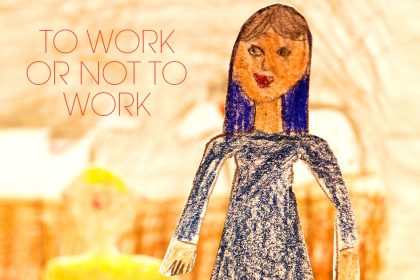Three ways anxiety is holding back your career (and how to overcome it)
Is anxiety holding back your career? Read three ways anxiety may be affecting your work, and how you can overcome it.
Awareness about the crippling effects of anxiety disorders is on the rise. Social media, health blogs, and morning talk shows are all filled with discussions of the many ways that anxiety affects our physical and mental health.
One aspect of anxiety that’s rarely discussed, however, is the impact that it can have on our careers. This often debilitating mental health issue can stop you from getting a promotion, signing an important client and more.
Three ways anxiety is holding back your career
Writer Jessica Thiefels personally suffers from anxiety, and has seen the many negative effects it can have. Over the years, she’s noticed three particular ways it has affected her, and how to understand and overcome it.
So if you’re worried that anxiety may be holding back your career, find out how to take control.
1) Anxiety is hurting your professional relationships
Anxiety, like most other mental health issues, takes a toll on our relationships. But it’s not just personal relationships that are affected. If we’re feeling anxious in the workplace, it’s safe to assume that our colleagues have noticed it.
Indeed, according to a 2006 survey by the Anxiety Disorders Association of America, 51% of employees said that stress and anxiety impact their relationships with coworkers and peers.
If you’re anxious at work, you may avoid making eye contact, chatting over the water cooler, and sharing lunch breaks with your team. And if you do, not only are you missing out on important chances to build mutual trust and rapport, but your colleagues (or worse, your boss) may also be left wondering if it’s something they said or did that has pushed you away.
How to overcome this anxiety
So how can you push past this anxiety to preserve your professional relationships? Don’t jump right in by planning a huge party for your entire company – instead take it one step at a time. Here are a few ways to start slow:
- Say “hello” to your coworkers as you walk by their desks in the morning.
- Commit to eating lunch in the break room, rather than alone at your desk, once per week.
- Challenge yourself to learn one personal detail about each one of your team members over the course of a month.
When you spend more time with team members and at team functions, you have a chance to show everyone the great work that you can do and how your personality melds with the group. These are both important factors in getting promoted to a management position, for example.
2) Anxiety is making you physically sick
Evidence continues to show that anxiety manifests itself in physical ways. Stress can lead to a depressed immune system, leaving you vulnerable to viruses, bacteria and pain.
Anxiety can also raise your blood pressure and throw your sleep habits out of whack. If your anxiety gets worse, it can trigger panic attacks, which come with a whole host of unwelcome physical sensations that actually mimic the symptoms of a heart attack.
Being sick often can mean you miss out on important opportunities in your career, or leave projects on the back burner that would otherwise put you in line for a big promotion or bonus.
Think back to the last few times you felt so miserable that you were forced to call in sick or dragged yourself into the office but just weren’t ‘there’ mentally. What did you miss by having to stay home? A big meeting for a delicate business deal? Reading over an important proposal? All of this takes a toll on your career.
How to overcome this anxiety
If you’re calling in sick more frequently than you’d like, see a medical professional. They can help you find a solution to manage your anxiety – if that’s the cause of your sickness – so that you can put in the work and focus on your career.
Another option to consider here is getting an official emotional support dog that can accompany you during your work week. Not all offices allow ESD’s, but many do. So if you think having a furry friend around could help, this may be something you want to consider.
3) Anxiety is making you procrastinate
How often have you faced a big project or a challenging task and found yourself suddenly frozen, unable to get started? It’s a common phenomenon, and it’s the root of procrastination.
This feeling often stems from a deep-seeded desire to succeed, which isn’t necessarily a bad thing. However, sometimes we’re so eager to get everything just right, or worse, afraid that we’ll get it all wrong, that we become afraid to commit to taking a first step, for fear it might not be the right one.
“If anxiety and stress related to crafting your version of perfection is too complex, it may feel so overwhelming to achieve your goals—that you may procrastinate,” say experts at The Office Club.
How to overcome this anxiety
So how can you get around this anxiety-induced roadblock? First of all, set and respect deadlines. Don’t fall prey to the trap of pushing back your due date; science has shown that if we give ourselves a little extra time, we very rarely end up using that time wisely.
When you’ve got a deadline for your project, break it up manageable chunks. Once you push through your anxiety to take that first step, you’ll have some momentum to keep plugging away. Many people also find working in focus blocks a brilliant tool for beating procrastination.
Read more practical tips to beat anxiety
If you need help to cope with anxiety in the workplace and beyond, take a look at these articles:
- How to avoid (and beat) anxiety and depression
- Seven simple tactics to tame your negative inner voices
Jessica Thiefels has been writing and editing for more than 10 years and spent the last five years in marketing. She recently stepped down from a senior marketing position to focus on growing her own startup and consulting for small businesses.
She’s written for sites such as Lifehack, Manta, StartupNation and more. When she’s not working, she’s enjoying sunny San Diego with her husband and friends or traveling somewhere new. Follow her on Twitter.










